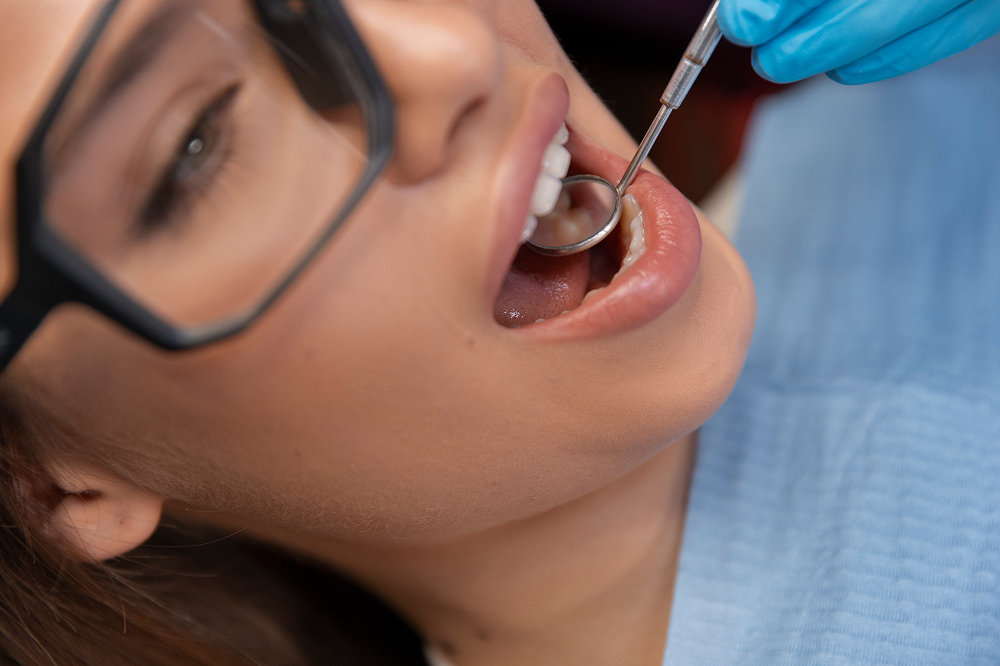
How Long Does a Root Canal Take?
Many patients focus on the discomfort of a root canal but rarely consider how the timing of the procedure affects
Root Canal Treatment
A root canal in Clearwater saves an infected tooth from extraction. At Causeway Dentistry, we’ll ensure your procedure’s comfortable and stress-free!
At Causeway Dentistry, we provide services that enable our patients to keep their teeth healthy and intact for as long as possible. If an infection develops deep inside a tooth, the only way to relieve your pain and save your tooth is with root canal (endodontic) treatment. The only other option is to remove the tooth, which is never our first choice.
A tooth consists of several layers; the hard outer layer is called enamel, and the softer layer beneath is dentin. The hollow center of your tooth contains dental pulp, that consist of the blood vessels, nerves, and tissue that keep your tooth healthy.
While dental pulp is usually well-protected, bacteria can find their way in through a large filling, a crack in the tooth, a deep cavity, or dental trauma. When this happens, an infection develops, and the result is usually excruciating tooth pain.
There’s a wide range of symptoms you might experience when you have a tooth infection:
If you currently experience any of these root canal symptoms, please call Causeway Dentistry. We offer same-day emergency dentistry and will see you as soon as possible to make you comfortable and provide treatment.
If you have a deep tooth infection that has caused nerve inflammation and severe pain, we may need to perform root canal therapy in Clearwater, FL, to resolve the problem. In this procedure, your dentist opens up your tooth to access the pulp. If this pulp is infected, he uses a precision tool to gently remove all infected tissue, even into your tooth roots. Then, he seals your inner tooth to protect it from future problems and will restore it with a tooth filling or dental crown later.

Immediately after treatment, your gums will be numb, but when the numbness wears off, you may feel some soreness that diminishes within a day or two. You may use over-the-counter pain relievers like ibuprofen (Advil) or acetaminophen (Tylenol) if those are safe for you to alleviate any soreness.
About two weeks after the primary procedure, you will return to our Clearwater dental office for your final restoration. Dr. Santos will use either a tooth-colored composite filling for smaller root canals or a dental crown. The restoration type depends on which tooth received treatment and which restoration will be the most secure over time.
Patients in Clearwater who need root canal treatment may suffer one or more of the following:
If you have felt any of these or a combination, please call your emergency dentist immediately for same-day dental care.
Tooth injury and deep tooth infection often lead to root canal treatment in Clearwater, FL. Fortunately, root canal therapy relieves your pain and rids you of symptoms. It also saves your tooth from extraction.

A root canal treatment means we use powerful anesthetics to numb the area around your infected tooth. Your Clearwater dentist then extracts the pulp and infected or inflamed tissues from the canal. Next, we rinse and clean the tooth before securing it with a temporary filling. After about two weeks, you come back to our dental office, where we fit you with a dental crown.
A dental crown is a tooth cap that blends seamlessly with your teeth, restoring function to the treated tooth.
Signs you need a root canal include:
If you have one or more of these symptoms, it’s critical to contact our dental office to arrange an emergency dental visit with the dentist. Pain and swelling will typically escalate until you have treatment. Additionally, failure to treat can result in extraction and the spread of infection.
We provide gentle treatment, including root canal therapy. If you suspect a root infection, reach out to our team as soon as possible.
Dr. Santos wants you to know that root canal treatment is not painful; it is the infection in your tooth that’s causing the pain. Removing the infection removes the source of your pain, making a root canal a pain-relieving, tooth-saving procedure.
Before we start your procedure, we will numb the tooth we’re treating. This will instantly relieve any pain you’re experiencing and ensure that you don’t feel anything during your procedure. We also offer nitrous oxide or laughing gas to help soothe any anxious feelings.
When the tooth is completely numb, Dr. Santos accesses the infected pulp and removes it using specialized dental instruments. He fills the hollowed-out space then seals the tooth with a temporary filling.

Dr. Earl Santos was born in Tacloban City, Philippines, and grew up in northeast Pennsylvania. His career in Florida began when he graduated from Lake Erie College of Osteopathic Medicine (LECOM) School of Dental Medicine ..

Many patients focus on the discomfort of a root canal but rarely consider how the timing of the procedure affects

Most people associate root canals with severe pain—but the real danger lies in the subtle signs your body gives before

While root canal treatment effectively eliminates tooth infection and preserves natural tooth structure, there are some circumstances where it can fail. This
After the numbness wears off and in a day or two following your root canal procedure, you may experience some soreness but no pain. Taking an OTC pain reliever like ibuprofen or Advil should be all you need to stay comfortable.
About two weeks after root canal treatment, you will return to our Clearwater dental office, and Dr. Santos will either place a final filling or a dental crown on the tooth. Which he uses depends on the tooth he’s treating, and he will recommend the one that’s right for your needs.
In more complex or involved cases, Dr. Santos may refer you to a root canal specialist called an endodontist. This ensures that you have access to the level of endodontic care you need to resolve your issue and protect your oral health.
After your procedure, you will return to Causeway Dentistry to have your crown or filling expertly placed.
With nitrous oxide (laughing gas), there’s no reason for you to sit anxiously through a dental appointment ever again. Nitrous oxide is a gas we mix with oxygen, and you inhale it through a small, comfortable breathing mask.
Just relax and breathe normally, and as you do, you’ll start to feel a warm sense of relaxation and a feeling of extreme well-being. You may feel drowsy, but you won’t go to sleep. Our dental team has had training to safely administer nitrous oxide, and they will monitor you continuously through your procedure to make sure you’re comfortable.
When we finish your procedure, we switch the flow from nitrous to pure oxygen that you inhale for several minutes. You will be able to drive yourself home safely as the effects leave your system quickly.